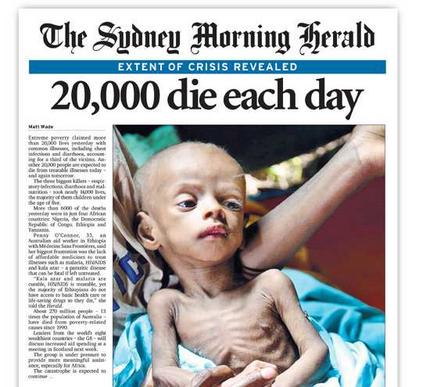Poverty
What is poverty?
WHO defines poverty as
Poverty is associated with the undermining of a range of key human attributes, including health. The poor are exposed to greater personal and environmental health risks, are less well nourished, have less information and are less able to access health care; they thus have a higher risk of illness and disability.
http://www.who.int/topics/poverty/en/
One of the problems with discussing poverty is clarifying what it means and how it can be defined. Poverty is generally divided into two types, absolute or extreme poverty and relative poverty.
Absolute poverty
Absolute or extreme poverty is when people lack the basic necessities for survival. For instance they may be starving, lack clean water, proper housing, sufficient  clothing or medicines and be struggling to stay alive. This type of poverty is most common in developing countries.
clothing or medicines and be struggling to stay alive. This type of poverty is most common in developing countries.
Relative poverty
As per European Commission, people are said to be living in poverty if their income and resources are so inadequate as to preclude them from having a standard of living considered acceptable in the society in which they live.
Because of their poverty they may experience multiple disadvantages through unemployment, low income, poor housing, inadequate health care and barriers to lifelong learning, culture, sport and recreation. They are often excluded and marginalised from participating in activities (economic, social and cultural) that are the norm for other people and their access to fundamental rights may be restricted.





